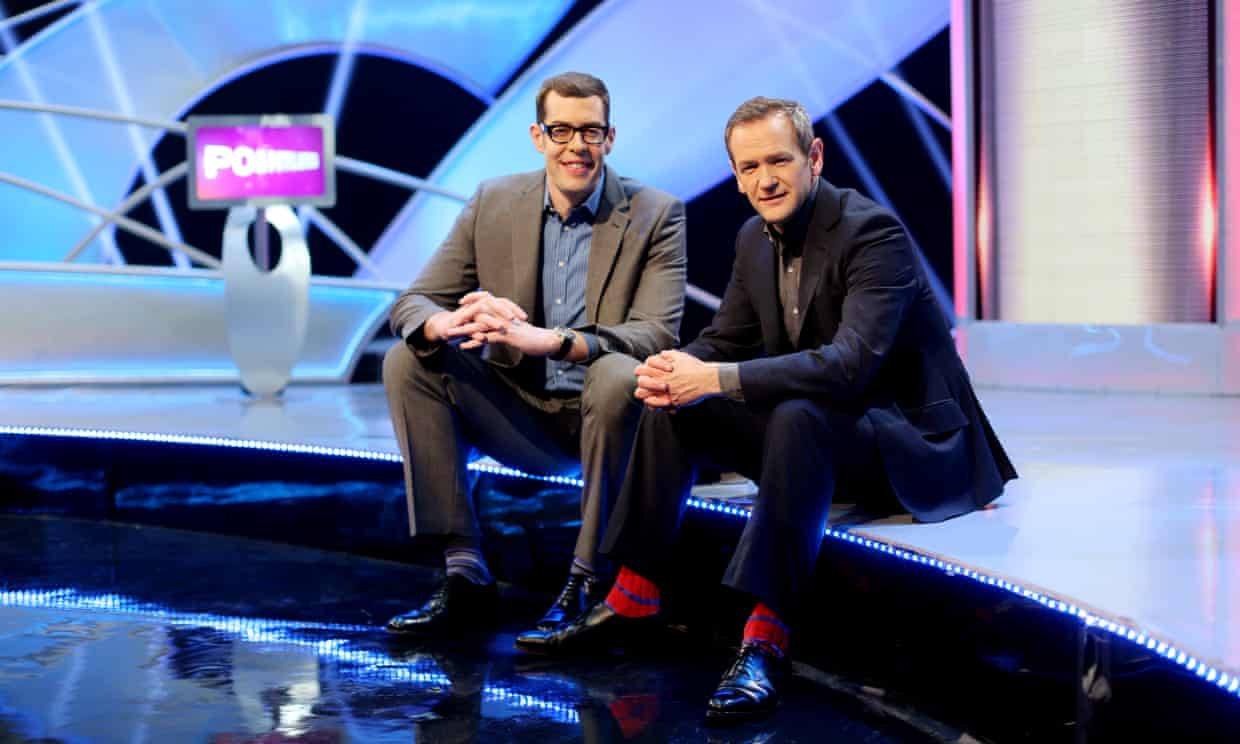
Jump the shark
Less than zero: how Pointless’s tweaked finale made fools of us all
With less at stake, Alexander Armstrong’s tea-time quizshow is now just a leisurely 45 minutes of tensionless pleasantries
by Sam RussellThey say celebrities die twice: once when they stop breathing, and a second time when their name becomes a winning answer on Pointless. It is a mark of the gameshow’s ubiquity. First appearing on BBC Two in 2009, Pointless reverse-engineered the Family Fortunes formula, polling the public in 100-second bursts to see how many examples of a subject they could provide (“People who married into the royal family” etc). Pairs of contestants then compete to provide the least obvious answers, like greedy pigs sniffing out obscure knowledge truffles, in exchange for £250 being added to the jackpot for each pointless one. A loving tribute, then, to how poorly we can recall types of tree, or remember the periodic table.
Presided over affably by the comedian and part-time opera singer Alexander Armstrong with Richard “brother of one of Suede” Osman impressively avoiding haughty condescension as the know-it-all sidekick, Pointless appeals to our inner pedant, amplifying quiz-based dopamine surges by cherishing rarer (and, by extension, better) knowledge. In an age when we spend hours Googling and then immediately forgetting things, the Pointless jackpot incentivises the retention of irrelevant info. Half-remembering Scorsese films, European capitals and Things Rick Astley Is Never Gonna Do suddenly became worth if not big, then respectable, bucks.
However, the format’s original final round – one all-or-nothing question, requiring a perfectly pointless zero – left most contestants stumped, with the rolling jackpot gaining another £1,000. But when you won, you won: father and son David and Jonathan Hammond Williams took home the biggest pot – £24,750 – in March 2013; a handsome reward for namechecking the Enrique Iglesias banger Maybe.
Three months after this triumph, however, the show tweaked its final round. Previously, contestants would select a category (Jazz; Golf; Mars etc), getting one question in return (Name: Miles Davis records; Holes at Augusta; Rocks etc). The categories now, however, yield three questions, contestants picking and choosing which to answer. Victories became more frequent but less impressive. Less likely to keep rolling over, the prize money now meanders around the £3,000 mark, and the regularity with which perfect zeroes are scored only reminds us that there’s a lot the British public doesn’t know.
Contrastingly, the finale of tea-time ITV rival The Chase remains barrelling anarchy, where contestants spend two minutes answering as many questions as possible, before a professional (usually) demolishes their total in seek-and-destroy fashion. Unlike Pointless, challengers rarely leave with the cash, but when they do it feels epic. In making victory an inevitability, Pointless has diluted its dramatic satisfaction, leaving behind a tensionless tea party: 45 leisurely minutes of anodyne pleasantries, a participatory prize and a thanks for coming.
Watching a pair of contestants halve a grand instead of having a pop at immortality over on ITV seems, well …